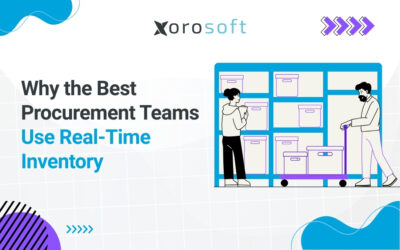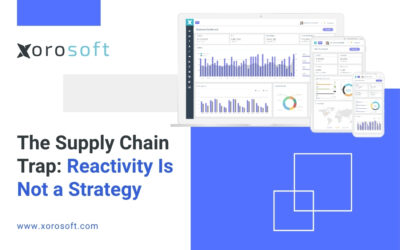
Introduction to ERP Systems
In today’s fast-paced business environment, managing financial operations efficiently is crucial for the success of any organization. One of the most effective ways to streamline financial management is by implementing an Enterprise Resource Planning (ERP) system. An ERP system is a comprehensive software solution that integrates various business functions, including general ledger, accounts payable, accounts receivable, and cash management. In this guide, we will explore the benefits of an ERP system for financial management and how it can optimize your financial processes.
Understanding the Benefits of an ERP System for Financial Management
Implementing an ERP system for financial management offers numerous benefits to organizations of all sizes. Firstly, an ERP system provides real-time visibility into financial data, allowing businesses to make informed decisions based on accurate and up-to-date information. This eliminates the need for manual data entry and reduces the risk of errors. Additionally, an ERP system automates routine financial tasks, such as invoice generation, payment processing, and reconciliation, saving time and improving efficiency. With an ERP system, financial data is centralized, making it easier to track and analyze financial performance across different departments and locations.
Key Features of an ERP System for General Ledger, Accounts Payable, Accounts Receivable, and Cash Management
An ERP system offers a range of features specifically designed to optimize financial management processes. In terms of general ledger management, an ERP system allows businesses to create and maintain accurate financial records, track transactions, and generate comprehensive financial reports. This ensures transparency and compliance with accounting standards. Accounts payable functionality within an ERP system enables businesses to streamline the invoice approval process, automate payment processing, and manage vendor relationships effectively. On the other hand, accounts receivable features help organizations track customer payments, manage credit limits, and generate accurate and timely invoices. Lastly, an ERP system enhances cash management by providing real-time visibility into cash flows, automating cash reconciliation, and optimizing cash forecasting.
How an ERP System Streamlines Financial Processes
Implementing an ERP system streamlines financial processes by automating manual tasks, improving accuracy, and increasing efficiency. With an ERP system, data entry is streamlined, reducing the risk of errors caused by manual input. By automating routine financial tasks, such as invoice generation and payment processing, an ERP system frees up valuable time for finance teams to focus on more strategic activities. Furthermore, an ERP system provides real-time visibility into financial data, allowing businesses to identify trends, make informed decisions, and respond quickly to changing market conditions. Overall, an ERP system simplifies financial management by integrating various processes and functions, eliminating silos, and promoting collaboration across departments.
Implementing an ERP System for Optimized Financial Management
Implementing an ERP system for optimized financial management requires careful planning and execution. Firstly, organizations need to assess their current financial processes and identify areas that can be streamlined or automated. This includes mapping out existing workflows, documenting pain points, and defining key performance indicators (KPIs) for financial management. Once the requirements are defined, organizations can evaluate different ERP solutions available in the market. It is essential to choose an ERP system that aligns with the specific needs of the business, offers scalability for future growth, and provides comprehensive support and training.
Choosing the Right ERP Solution for Your Business – The Case of Xorosoft ERP
When it comes to choosing an ERP solution for your business, Xorosoft ERP stands out as a reliable and comprehensive option. Xorosoft ERP offers a range of features specifically designed for financial management, including general ledger, accounts payable, accounts receivable, and cash management. With Xorosoft ERP, businesses can streamline financial processes, automate routine tasks, and gain real-time visibility into financial data. The system is highly customizable and can be tailored to meet the unique requirements of different industries and business sizes. Xorosoft ERP also provides robust security features to protect sensitive financial information and offers ongoing support and training to ensure a smooth implementation process.
Integrating an Inventory Management System with Your ERP System
In addition to financial management, integrating an inventory management system with your ERP system can further optimize your business operations. By integrating inventory management with your ERP system, businesses can gain real-time visibility into inventory levels, automate reorder processes, and improve inventory accuracy. This integration enables better demand forecasting, reduces stock-outs, and minimizes excess inventory. Additionally, it streamlines the procurement process by automating purchase orders and tracking supplier performance. With an integrated inventory management system, businesses can achieve better inventory control, improve customer satisfaction, and reduce carrying costs.
The Role of Accounting in an ERP System
Accounting plays a crucial role in an ERP system, as it ensures accurate financial reporting and compliance with accounting standards. An ERP system provides a centralized platform for accounting processes, including general ledger management, accounts payable, accounts receivable, and financial reporting. By automating accounting tasks, an ERP system eliminates manual errors, improves data accuracy, and enhances financial transparency. Furthermore, an ERP system enables businesses to generate comprehensive financial reports, analyze financial performance, and comply with regulatory requirements. Accounting in an ERP system is not just about recording transactions, but also about providing valuable insights and enabling strategic decision-making.
Maximizing the Benefits of an ERP System for Financial Management
To maximize the benefits of an ERP system for financial management, organizations need to focus on continuous improvement and optimization. Regularly reviewing and analyzing financial processes can help identify areas for further streamlining and automation. It is essential to leverage the reporting capabilities of an ERP system to gain insights into financial performance and identify opportunities for cost savings and revenue growth. Additionally, ongoing training and support for employees using the ERP system ensure that they are utilizing its features to their full potential. By continuously optimizing financial processes and leveraging the capabilities of an ERP system, organizations can unlock the full potential of their financial management.
Conclusion – Unlocking the Potential of Your Financial Management with Xorosoft ERP
In conclusion, implementing an ERP system is a game-changer for financial management. By streamlining processes, automating tasks, and providing real-time visibility into financial data, an ERP system enables organizations to optimize their financial management processes. Xorosoft ERP stands out as a reliable and comprehensive solution that offers a range of features specifically designed for financial management. By choosing Xorosoft ERP, businesses can streamline their general ledger, accounts payable, accounts receivable, and cash management processes, and unlock the full potential of their financial management. Book a demo with Xorosoft today and take your financial management to the next level.









